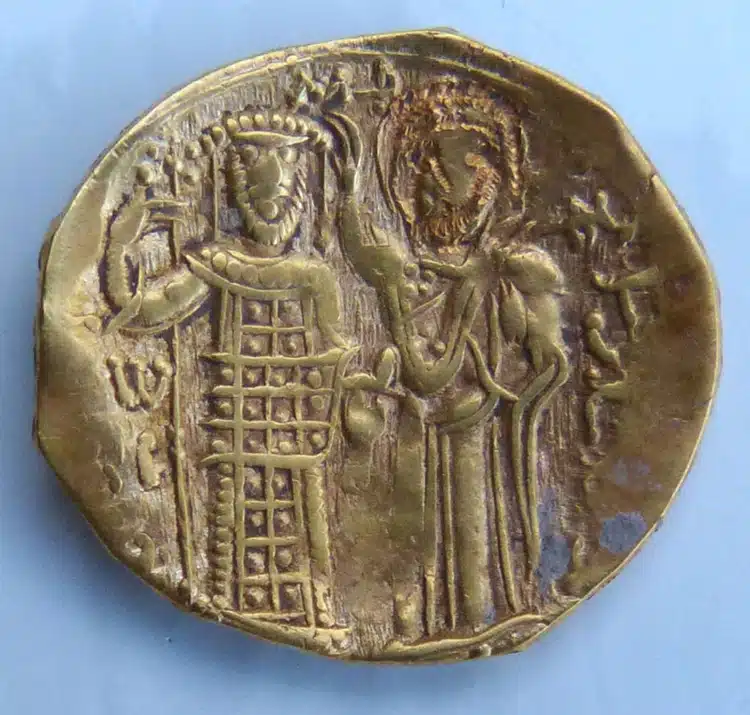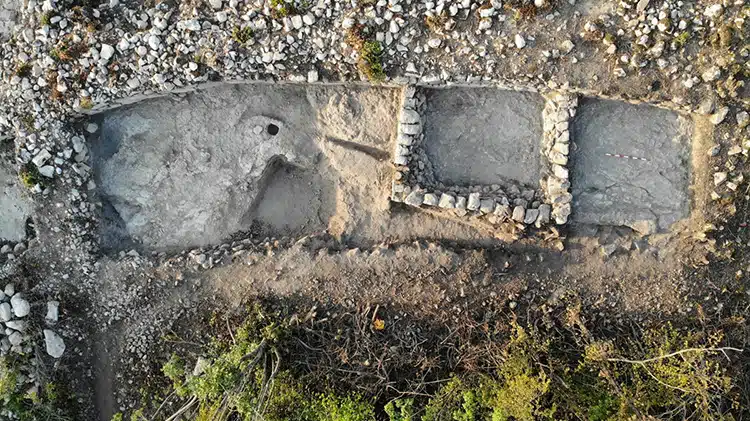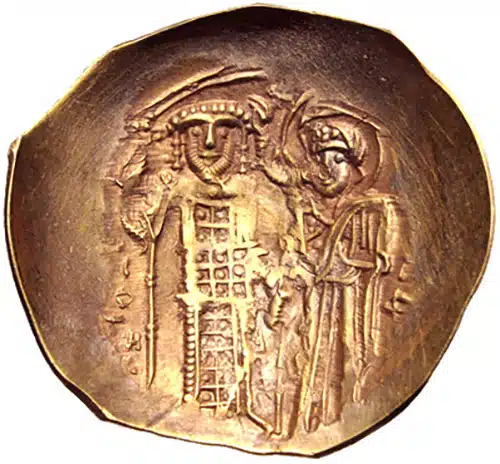
The recently discovered coin. (Photo: Rousse Regional History Museum)
Ancient treasures and medieval artifacts are constantly uncovered throughout Europe and the Near East, sharing a piece of empires and cultures from the past. Throughout the Roman Empire and into successive eras, coins made of precious metals traveled across Europe and the Near East as trade criss-crossed the region. For example, a hoard of Roman coins was unearthed in Britain, serving as evidence of its past as an imperial outpost of empire. Similarly, golden Persian coins discovered in a city in modern-day Turkey are evidence of the settlement’s Hellenistic roots. Whether buried in hoards or uncovered individually, coins tell economic, political, and social stories throughout history. A new discovery in Bulgaria of a gold coin depicting a Byzantine emperor tells these stories about a region that was at the border of powerful realms.
In the medieval period between the 12th and 14th century, what is now modern Bulgaria sat at the border of two powerful forces: the Byzantine emperors based out of Constantinople (now Istanbul) and the Second Bulgarian Empire. The latter, at its greatest extent, stretched along the Danube River from the Black Sea all the way across a swath of Greece to the Mediterranean on its western coast. Part of the empire occupied what is now northwestern Turkey. Byzantine rulers in the region were therefore quite close neighbors. One of these rulers was John III Doukas Vatatzes, Emperor of Nicaea from 1222 to 1254. Nicaea was a short-lived empire formed after crusaders sacked Constantinople in 1204. Despite his dominion’s short duration in the annals of history, it is this emperor who features on an exciting new numismatic discovery in Bulgaria.
The coin was discovered Cherven, a medieval fort settlement in Bulgaria. It was discovered among remnants of daily life, such as arrowheads, jewelry, and pieces of pottery items. The find was announced by Bulgaria’s Rousse Regional Historical Museum. The coin was unearthed near the Intermediate Fortress Wall, a late 14th-century Ottoman construction. The gold coin, called a perpera, dates back to the 13th century. At that time, the Byzantine rulers did not control Bulgaria. However, with the rise of the Ottomans in Byzantine lands, the latter took control in these regions as well. Therefore the coin tells an interesting story.
Firstly, it shows that Byzantine-era coinage—depicting their robed emperors—was still in use. However, the coin had clearly been altered as it was lighter than at minting. This indicates that the coin was resized. This altered currency may have arrived in Cherven soon after 1388 when the Ottomans themselves arrived. The precious gold material was also somewhat of a surprise to archeologists. It provided an indication that among the lower class inhabitants known to have lived in the area, some wealthy people too were among their ranks. Lastly, like previous gold coins found in the archeological record of the Bulgarian period, the coin demonstrates the portability of precious metal currency across empires.
Further finds may await that tell even more of the story woven between Bulgarians, Byzantines, and Ottomans in the region. Only time will tell.
A gold coin was unearthed in a medieval fortress in Bulgaria.

The remains of a medieval Byzantine church nearby where the coin was found. (Photo: Rousse Regional History Museum)
The artifact illustrates the overlap of empires.

A very similar 13th-century coin depicting Theodore II Ducas-Lascaris. (Photo: Classical Numismatic Group, Inc. via Wikimedia Commons, CC BY-SA 2.5)
h/t: [Live Science]
Related Articles:
303 Newly Discovered Nazca Geoglyphs Depict a Wide Array of Animals and Humanoids
Volunteer Archeologist Unearths Rare Pictish Ring in Scotland
Ancient Roman Mosaic of Marine Life Discovered in England
Trove of Persian Gold Coins Discovered in Ancient Greek City
